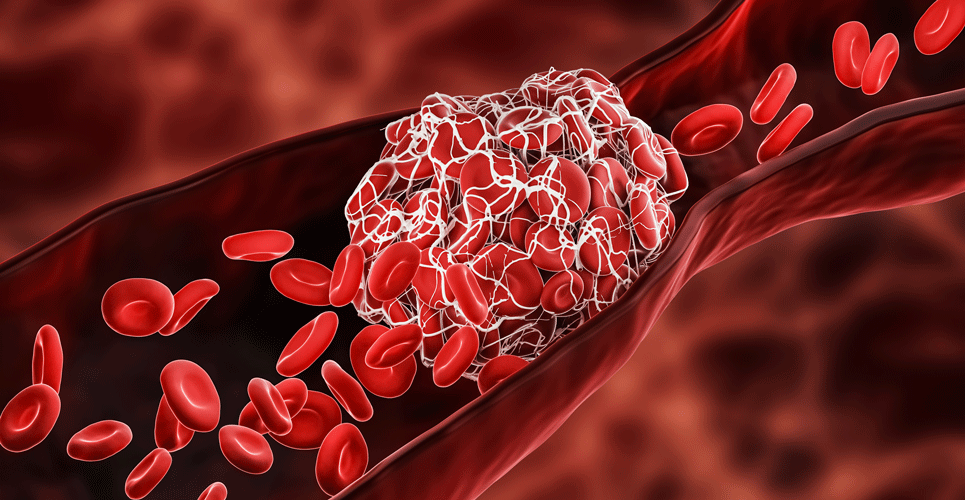A longer course of rivaroxaban following an isolated distant deep vein thrombosis significantly reduces the risk of a recurrent thrombosis
A 12-week rather than 6-week course of rivaroxaban, following an isolated deep vein thrombosis, significantly reduces the risk of a recurrent thromboembolic event over the next two years according to the results of a randomised, double-blind, placebo-controlled trial by Italian researchers.
An isolated distal deep vein thrombosis (DVT) accounts for between a quarter and a half of all leg DVTs. Moreover, left untreated, an isolated distal DVT can extend to the proximal veins or cause a pulmonary embolism in between 1% and 22% of cases. Treatment of an isolated DVT involves the use of anticoagulants both therapeutically and prophylactically although the duration of the therapy to prevent recurrent events is uncertain. In a meta-analysis of studies, it was clearly shown that anticoagulant therapy reduced the risk of venous thromboembolism in patients. However, the review also found that there was a lower rate of recurrent venous thromboembolism in patients who received longer than 6 weeks of anticoagulant therapy.
With the potential for a greater reduction in recurrent thromboembolic events from a longer treatment course, in the present study, researchers compared the impact on recurrent events of either a 6- or 12-week course of rivaroxaban. They recruited patients diagnosed with a symptomatic isolated distal DVT of the leg and who were then given rivaroxaban 15 mg twice daily for three weeks and then 20 mg daily for a further three weeks. At this point, participants who had not developed any thrombotic and haemorrhagic events, were randomised 1:1 to either continue with rivaroxaban 20 mg daily or matching placebo for a further 6 weeks. The primary efficacy outcome was a recurrent venous thromboembolism during the follow-up and the primary safety outcome was major bleeding, after randomisation.
Rivaroxaban and recurrent thromboembolism
A total of 402 individuals with a mean age of 65 years (58% women) were included and randomised to rivaroxaban (200) or placebo and followed for 24 months.
A recurrent thromboembolism occurred in 11% of rivaroxaban patients and 19% of those assigned to placebo (relative risk, RR = 0.59, 95% CI 0.36 – 0.95, p = 0.03). A recurrent isolated distal DVT recurred significantly less frequently, occurring in 8% and 15% of the rivaroxaban and placebo groups respectively (p = 0.02). However, a proximal or pulmonary embolism occurred in an equally small number of patients in each group and there were no major bleeding events.
The authors concluded that giving rivaroxaban for 3 months in patients with and isolated distal DVT who did not experience any events during the first 6 weeks of therapy reduced the risk of recurrent venous thromboembolism.
Citation
Ageno W et al. Rivaroxaban treatment for six weeks versus three months in patients with symptomatic isolated distal deep vein thrombosis: randomised controlled trial. BMJ 2022

